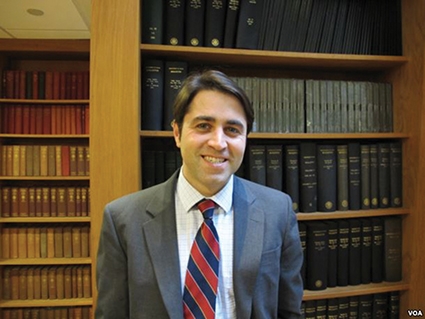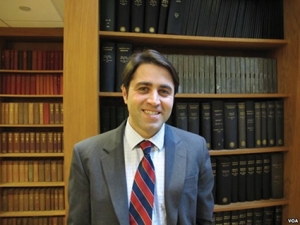Turkey Expert: No Good Way Out
The President of Turkey, Recep Tayyip Erdogan, has declared a State of Emergency for three months and suspended the European Convention on Human Rights in the wake of the recent coup. To discuss the implications of Turkey’s foreign policy dynamics, we spoke to Sinan Ciddi, Director of the Institute for Turkish Studies at Georgetown University.
300 people killed, more than 1,400 injured and 6,000 arrested. What happened?
What happened in Turkey is very disconcerting. From the standpoint of an actual coup d'etat, it was a failure; we did not see an immediate collapse of the Turkish State or the Turkish government. But now that the plotters have been arrested, alleged conspirators been taken into custody or fired from their positions of employment, what we are seeing is a large crackdown in society- what I am starting to call the “civilian coup.”
The Turkish President blames his former ally, Pennsylvania-based Fethullah Gulen, and his Hizmet Movement. How serious is Erdogan’s extradition request?
Erdogan is blaming Gulen for being singularly responsible for spearheading this coup. He would like the United States to extradite Gulen to Turkish custody. But the onus is on Turkey to prove to the Justice Department here in Washington that Gulen was behind the plot; something the Turks have not been able to do in any meaningful way that the Justice Department would consider evidence, and until that happens, the US is highly unlikely to expedite him.
Calling on the US, President Erdogan also said, “If we are strategic partners or model partners, do what is necessary." Is Turkey confronting the US and, if so, what are the prospects of future partnership?
Turkish-US relations have been getting increasingly more difficult since the Gezzi protest of 2013. I do not think relations will ease when Turkish authorities realize that just because they want the extradition, the US will be disinclined to comply.
Turkey blocked US access to the Incirlik military base. Should we expect the leverage battle to go on?
The relationship between Turkey and the US seems to be evolving to the notion of quid pro quo, a very transactional relationship. For American policymakers and military officials prosecuting the war against the Islamic State, there is a big question mark – is Turkey still considered a reliable partner? Turkey is not in a position to say “if you don’t hand over Gulen, we will keep you out of Incirlik.” Once Turkey does that, there might be a point of no return. Turkey needs the United States, needs NATO; it needs a Western anchor more now than ever due to the nature of the threats that Turkey is facing with its own internal problems.
Following the Erdogan government's response to the failed coup, both the US and the EU warned against human rights abuse. How do you think this will effect Erdogan’s next moves?
US Secretary John Kerry said Turkey has to maintain its democratic standards to remain in NATO although there is no mechanism for forcing countries to leave. There is no easy answer on how Turkey will continue to behave within the NATO structure.
The leverage the EU and US has has never been lower vis-a-vis Turkey. The possibility of reinstating the death penalty right now is a real possibility. The country has not entertained this idea for a long time. A pro-Erdogan vigilante mob really wants the execution of would-be coup makers. I cannot see anything that the EU or the US can do because EU prospects have never been lower for Turkey. If Erdogan wants to reinstate the death penalty, it will happen.
What kind of Turkey comes out of all this?
I find it increasingly difficult to find a positive outcome from this. The failed coup attempt was positive to the extent that the democratically elected government of the country was not overthrown. But now the same government is utilizing this for vetting out all suspected and actual dissidents. If you’re asking what the next project for Turkey is, it’s the promulgation of Erdogan as unquestioned leader of Turkey. No transparency, no accountability: his word becomes a law. That’s what I’m afraid of.
Some say this is Turkey’s “Islamic Revolution.”Do you agree? Is secularism at risk?
Removing secularism is likely to be a very divisive move. Yes, there are people who do not appreciate or welcome any notion of secularity in Turkey, but there are also large groups of people who count on that, who believe that it is a founding cornerstone of Turkey. The removal of secularism will pit very different camps of people against each other; it will exuberate tensions among different sects; it will also pit religious people against secular people. We already started to see vigilante squads picking out people drinking in bars and pubs. The question is if law enforcement is going to prevent vigilantism against different ways of life. I don’t have a clear answer. Only a good sense of secularism has been able to prevent that in the past.
For the Georgian version of this interview, go to: http://www.amerikiskhma.com/a/interview-with-sinan-ciddi/3430504.html
Nana Sajaia, Voice of America Georgian Service












